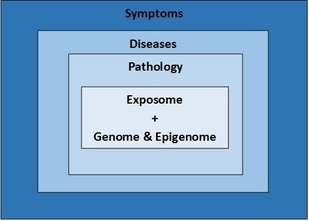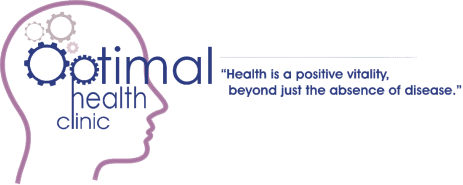
I had a pleasure to attend Chris Kresser’s event in London this month. He specializes in ancestral health, Paleo nutrition and functional and integrative medicine. I especially value his thorough, in-depth research and very honest attitude. He has a great integrity in his approach.
I liked Chris’s short breakdown about functional medicine approach versus conventional health care. It’s not a critique of the standard health care as it can be and often is life-saving. It has some limitations though. In a perfect word, which I believe we are aiming for, we (allopathic and alternative) practitioners would work together delivering the best of both approaches to the clients. Functional medicine seems like a beginning of such a movement.
This is just a short description and my interpretation (not in exact words) of Chris’s explanation. I hope it can be interesting for those, who want to find out more about functional medicine approach, which I follow in my practice.
Functional medicine sees the person as a whole, not just a collection of organs. It doesn’t focus on a disease but on the person instead -with all complex processes to evaluate. Conventional approach is often limited to disease management, especially in chronic conditions so common nowadays. We often leave the doctor with a prescription and no other dietary or lifestyle suggestions.
Why medication shouldn’t be the only strategy towards better health:
In contrast functional medicine is:
The following graphic shows the process of a disease as descried above.
Exposome –all non-genetic exposure.
Pathology –underling mechanism like blood sugar dysregulation created by exposome, genome and epigenome.
Disease –disorder in structure or function that produces symptoms.
Conventional medicine usually starts at the symptoms level while functional medicine approach is to intervene at the exposome, genome and epigenome level. This is what is more likely to bring true cure or prevent any symptoms from occurring in the first place.
To find more information and multitude of health related articles, podcasts etc. please go to ChrisKresser.com. I hope you will enjoy Chris’s work as much as I do.
I liked Chris’s short breakdown about functional medicine approach versus conventional health care. It’s not a critique of the standard health care as it can be and often is life-saving. It has some limitations though. In a perfect word, which I believe we are aiming for, we (allopathic and alternative) practitioners would work together delivering the best of both approaches to the clients. Functional medicine seems like a beginning of such a movement.
This is just a short description and my interpretation (not in exact words) of Chris’s explanation. I hope it can be interesting for those, who want to find out more about functional medicine approach, which I follow in my practice.
Functional medicine sees the person as a whole, not just a collection of organs. It doesn’t focus on a disease but on the person instead -with all complex processes to evaluate. Conventional approach is often limited to disease management, especially in chronic conditions so common nowadays. We often leave the doctor with a prescription and no other dietary or lifestyle suggestions.
Why medication shouldn’t be the only strategy towards better health:
- It doesn’t, in most cases, address the root of the problem.
- It may supress the symptoms but at same time impairs important functions of the body, often leading to worsening of the condition over time. As an example NSAIDs (Non-steroidal anti-inflammatory drugs) used for arthritis reduce blood flow to cartilage making condition worse with prolonged use.
- Often corrects one imbalance but causes another –hence the side effects, which often required another medication to correct and so on.
- Nothing in the body is redundant. What we often think as having purely ‘negative’ impact on the body is usually necessary for proper function of another process. When we suppress it we cause damage somewhere else. Histamine is a good example, causing inflammation and allergic symptoms but needed in the brain where it increases function of the neurons. This is why we feel drowsy on antihistamines.
In contrast functional medicine is:
- Investigative, looking for root causes of the symptoms.
- Holistic, whole body (systems) oriented.
- Often safer, producing fewer side effects and complications –achieved by addressing the cause of the disease and incorporating diet and lifestyle advice as well.
- It is patients centred. Treats patients not a disease.
- It empowers and educate patients, who are encouraged to play an active role.
- It is integrative, combines allopathic and alternative approaches.
- It is preventative versus just reactive.
The following graphic shows the process of a disease as descried above.
Exposome –all non-genetic exposure.
Pathology –underling mechanism like blood sugar dysregulation created by exposome, genome and epigenome.
Disease –disorder in structure or function that produces symptoms.
Conventional medicine usually starts at the symptoms level while functional medicine approach is to intervene at the exposome, genome and epigenome level. This is what is more likely to bring true cure or prevent any symptoms from occurring in the first place.
To find more information and multitude of health related articles, podcasts etc. please go to ChrisKresser.com. I hope you will enjoy Chris’s work as much as I do.

 RSS Feed
RSS Feed